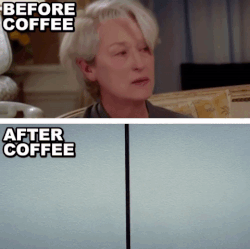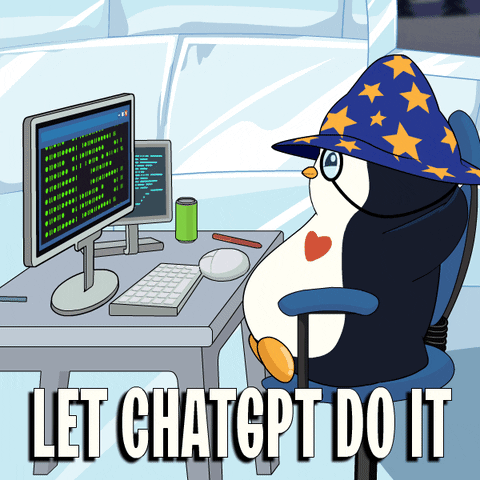- The Daily Tonic
- Posts
- Good idea or bad idea: nutrition advice from a chatbot?
Good idea or bad idea: nutrition advice from a chatbot?
Plus: Why should you delay your first cup of coffee?
Friday. Happy International Women’s Day! Also, you might want to leave your fanny pack at home when you travel this summer. Airline gate agents are getting really strict and will come after your fanny pack if you try to play fast and loose on the two-item carry-on policy (READ MORE). Oh, how times have changed. What is the world coming to now that you can’t even sneak an extra fanny on board when you fly? Where are you supposed to keep your snacks and lip balm?
Speaking of the changing times, this thing called ChatGPT isn’t just writing college essays; it’s dishing out nutrition advice. So, can you rely on an AI chatbot to help you with your nutrition? Let’s dive in.
DEEP DIVE
What Does ChatGPT Have To Say?
It’s 2024, and artificial intelligence (AI) chatbots are everywhere. They can write essays, draft emails, provide feedback on your writing, pass the Bar Exam, and even do complicated math. But can an AI chatbot give you sound nutrition advice?
When scrolling through the internet looking for advice on what to eat, maybe you’ve considered asking ChatGPT. After all, it’s a handy tool with access to more knowledge than any human could ever obtain. But when it comes to nutrition advice, is a robot really the best source? A study that came out recently says it's probably not the best idea (READ MORE).
Researchers decided to check if the nutrition advice ChatGPT gives matches up with the guidelines that experts around the world agree on. They picked a bunch of health issues that need special diets, like heart problems, diabetes, and kidney disease. They even included a newer term for a liver condition, but since ChatGPT's info was a bit old, it got confused with the new name.
To ensure they were asking questions like real people would, the researchers got doctors and dietitians to come up with different ways to ask for diet advice. They wanted to see if ChatGPT would give the right food suggestions for each condition. They even asked the questions in several new chats to ensure ChatGPT wasn't getting mixed up with past conversations.
Then, researchers had two dietitians who didn't know where the advice came from check the answers. They were looking to see if the advice matched the international guidelines on what to eat for each medical condition. If the chatbot’s advice was too general or missed some key points, they noted that, too.
What they found was that ChatGPT did okay but not great. About half of the advice was right on target for some health issues. But there were times when ChatGPT missed the mark, like not being specific enough about how much protein to eat for kidney disease, which can be a big deal.
Things got really tricky when the researchers made up a patient with more than one health issue. ChatGPT got pretty confused and mixed up the advice, which could be harmful.
Again, getting general nutrition advice from a chatbot isn’t going to harm most people. Whatever a robot says can't be as bad as some of the advice people are getting on TikTok. However, if you need specific nutrition guidance to treat a medical condition, getting the wrong advice from a chatbot could have serious consequences.
In the study, ChatGPT kept saying it's important to talk to a real dietitian to get a meal plan that's right for you. So, hat’s off to the robot for including that important disclaimer.
The key takeaway? It can be tempting to ask the internet for health advice, especially with something as easy to use as ChatGPT. But this study shows it won't always give you the best answers, especially if you have specific health needs.
The best bet is to talk to a dietitian who can make a plan just for you. Although, you probably don’t need a dietician or a chatbot to tell you the things we write about all the time—avoid highly processed foods, drink plenty of water, and prioritize protein and veggies at every meal.
For fun, I asked ChatGPT to give me the best nutrition advice in two sentences for someone looking to optimize their health. Here is what it gave me:
Focus on consuming a variety of whole foods, including fruits, vegetables, lean proteins, whole grains, and healthy fats, to ensure you receive a balanced spectrum of nutrients essential for optimal health. Minimize your intake of processed foods and added sugars, as these can contribute to inflammation, weight gain, and chronic diseases.
I can’t say we disagree.
OUR PICKS
Tonic Shots
VIDEO: Here are important health numbers women need to know and track! (WATCH VIDEO)
The connection you didn’t know existed: fiber and brain function. (READ MORE)
FDA allowing labels that claim yogurt can help reduce type 2 diabetes risk. (READ MORE)
TRENDING
Why Daylight Savings Time Is Bad For Your Health

As people in the U.S. prepare to set their clocks ahead one hour on Sunday, I find myself bracing for the annual ritual of media stories about the disruptions to daily routines caused by switching from standard time to daylight saving time.
About one-third of Americans say they don’t look forward to these twice-yearly time changes. And nearly two-thirds would like to eliminate them completely, compared with 17% who aren’t sure and 21% who would like to keep moving their clocks back and forth.
But the effects go beyond simple inconvenience. Researchers are discovering that “springing ahead” each March is connected with serious negative health effects, including an uptick in heart attacks and teen sleep deprivation. In contrast, the fall transition back to standard time is not associated with these health effects, as my co-authors and I explained in a 2020 commentary.
FROM THE ARCHIVE
Wait Before You Caffeinate

Have you ever considered delaying that tempting morning coffee for a little while? Surprisingly, a little patience could be the key to a better day! Here’s why:
Imagine this scenario: you wake up and are just dying for that aromatic cup of coffee. For many, that morning brew is the ultimate pick-me-up, the fastest way to kick off a day on the right foot. But what if waiting a smidge longer could actually set you up for a more energetic and productive day?
Dr. Andrew Huberman, a neuroscientist and professor at Stanford University, recently discussed this very idea on his podcast. He dives into the world of caffeine, exploring how it affects our body and brain. His recommendation? Holding off on that morning cup for about 90 to 120 minutes after waking up. He suggests this small delay could help you beat that all-too-familiar afternoon drowsiness and even improve your sleep at night.
SUPPORT US
Support Our Team 🧡
We're all about making your journey towards better health enjoyable and insightful. By becoming a member of The Daily Tonic family, you're not just supporting us, you're elevating your own wellness journey!
We believe in the power of community and the impact of your support. Your membership helps us continue delivering the best health and wellness newsletter around. If you enjoy starting your day with a dose of wellness wisdom from The Daily Tonic, consider joining us as a member.
🌿 Continue Reading
This is the web version of The Daily Tonic.
Subscribe to get full access to all our newsletters with more subscriber-only content. Get science-backed health news and stories straight to your inbox. See you there 📬
